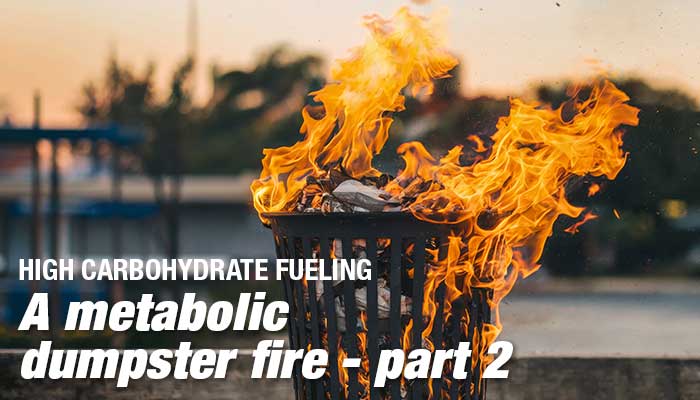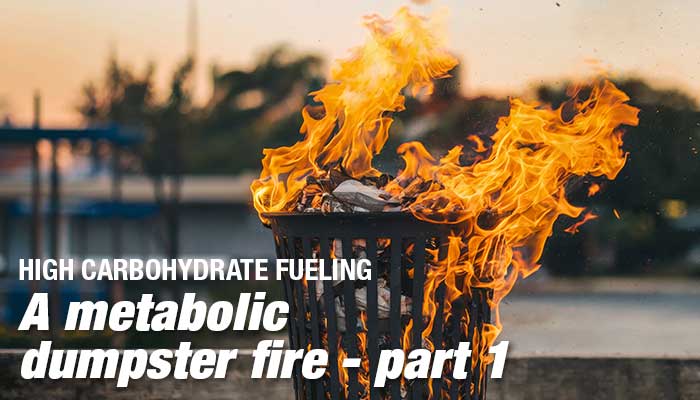
BY STEVE BORN
Thought to be the first study of its kind—a unique population-based study cohort—Swedish researchers found a connection between excess sodium intake and both carotid and coronary atherosclerosis [1].
Over 10,000 participants in the Swedish Cardiopulmonary bioImage Study (SCAPIS) were involved in this study. The average age was 58, comprised of 52% women and 48% men. Values for sodium consumption among participants with valid urinary data were calculated using estimated 24-hour sodium excretion. The results showed that rising sodium excretion levels were linked to increased occurrence of carotid plaques, coronary artery calcium, and the narrowing of the coronary arteries.
According to study researcher Dr. Jonas Wuopio, Ph.D., “The study is the first to examine a potential link between high dietary sodium intake and atherosclerosis in coronary and carotid arteries. The association was linear, meaning that each rise in salt intake was linked with more atherosclerosis. The findings applied even at normal blood pressure levels, suggesting that salt could be damaging even before the development of hypertension.”
Atherosclerosis is the process of plaque build-up, primarily of cholesterol, fats, and calcium, in and on the artery walls. Coronary artery disease—the number one killer of Americans—occurs when the plaque build-up causes the inside of the arteries to narrow over time, blocking optimal blood flow to the heart.
Carotid atherosclerosis (carotid artery disease) is the build-up of plaque and narrowing/hardening in the carotid arteries in the neck, the ones that deliver blood to the brain. Carotid atherosclerosis is a major risk factor for stroke, and when considered separately from other cardiovascular diseases, stroke ranks fifth among all causes of death in the United States.
With this eye-opening research and a wealth of other research detailing the health issues associated with excess sodium intake, it's no wonder the World Health Organization (WHO) is vigorously campaigning to reduce the global population's salt intake by an average of 30% by 2025. With a 30% reduction in global salt intake, the World estimates that 2.5 million deaths could be prevented yearly [2]. In the United States, with coronary artery disease and stroke ranking 1st and 5th in terms of death rates—much of which is due to excess sodium consumption—a reduction is not just a wise strategy; it's a necessity!
REFERENCES:
[1] Wuopio J, Ling YT, Orho-Melander M, Engström G, Ärnlöv J. The association between sodium intake and coronary and carotid atherosclerosis in the Swedish population. Eur Heart J Open. 2023;3:oead024.
[2] https://hammernutrition.com/blogs/endurance-news-weekly/reduce-sodium-in-processed-packaged-foods










7 comments
So how do our supplements that are full of salt affect us? Is it ok because we are sweating them out during races, or should we trim back on the salts in supplements as well?
———
Hammer Nutrition replied:
Sodium intake during exercise does not count as dietary sodium intake. The reasons, as you mentioned/alluded to in your comment, are because your body is using—and thus depleting—this and other electrolytic minerals to perform the during-exercise functions that they are responsible for, and also because you’re losing/depleting these minerals via sweat. Taking any of the Endurolytes products during exercise simply replenishes what your body has been using/losing to allow optimal exercise performance to continue.
That said, we need to make sure we are not overconsuming salt/sodium during exercise, especially at the expense of other electrolytic minerals. In our knowledge resource on proper fueling, “5 Secrets of Success for Endurance Fueling” (https://cdn.shopify.com/s/files/1/0617/9192/8555/t/19/assets/9709a0a45248—SOS-380c7a.pdf), we state: “Your body has very effective mechanisms for monitoring and conserving its stores of sodium. Consuming excessive amounts of sodium interferes with this natural process. If your body detects a drastic increase in sodium from outside sources (salty food or electrolyte products too high in sodium), your body will stop filtering and recirculating sodium and instead begin purging the excess. The immediate results of this are swelling and elevated blood pressure, with extreme cases resulting in lethargy, muscle weakness, seizures, and even death.”
When it comes to electrolyte replenishment during exercise, a balance of ALL the necessary minerals—sodium, chloride, calcium, magnesium, and potassium—are necessary, and that’s what you’ll find in our Endurolytes products (https://hammernutrition.com/collections/electrolytes).
Lastly, in his article, “The Sodium War is Over” (https://hammernutrition.com/blogs/advanced-knowledge/the-sodium-war-is-over-2), Hammer Nutrition Founder and CEO, Brian Frank, concludes “You can and will improve your ability to withstand heat and humidity during endurance exercise by reducing your daily sodium intake!”
So, is there anything we can do about artery disease caused by too much salt besides cut down on salt?
———
Hammer Nutrition replied:
We all need to decrease our sodium intake, and when we do that—and increase our potassium intake—the results are quite phenomenal. I discuss this in the article “Potassium: A Key to Longevity—-Increase Potassium, Decrease Sodium: Live a Longer Life” at https://cdn.shopify.com/s/files/1/0617/9192/8555/t/19/assets/e69caa00ca27—ENissue111-2f3b4e.pdf#page=52). What is most interesting about the results of the study is that not only did the participants in the “lower sodium/higher potassium” group have a lower risk of cardiovascular disease and ischemic heart disease (aka artery disease or "hardening of the arteries”), they had a decreased risk of dying from ANY cause (wow!). Put another way, a higher sodium intake was related to greater risk of dying from any cause, while a higher potassium intake was associated with a lower mortality risk. When you read the article, you’ll see a list of foods that are high in potassium. A conscious effort to reduce our sodium intake while increasing potassium intake is an excellent way to reduce your risk for heart disease.
Another vitally important dietary practice to follow is to lower your omega-6 fatty acid intake—which primary comes from processed seed oils—so that it is more balanced with omega-3 fatty acid intake. In the article,” Processed Seed Oils—Undeniable Damaging to You Health” at https://hammernutrition.com/blogs/endurance-news-weekly/processed-seed-oils, Dr. James DiNicolantonio, refers to these omega-6 seed oils as “drivers of coronary heart disease.”
Supplements to support cardiovascular health include:
Race Caps Supreme(https://hammernutrition.com/collections/supplements/products/race-caps-supreme) contains Coenzyme Q10, idebenone, and vitamin E, all of which are involved in supporting cardiovascular health. Essential Mg(https://hammernutrition.com/collections/supplements/products/essential-mg) contains 5 forms of highly bioavailable magnesium. Research published in Nutrition Journal found a lower risk of coronary artery calcification among men and women with higher levels of serum magnesium. Other research published in the Journal of the American Heart Association reports the finding of an association between higher magnesium levels and a decreased risk of coronary heart disease (CHD) and sudden cardiac death.
EndurOmega (https://hammernutrition.com/collections/daily-essentials/products/enduromega) contains the essential fatty acids, Eicosapentaenoic acid (EPA) and docosahexaenoic (DHA). Among their many benefits, research suggests omega-3 fatty acids reduce inflammation and modulate blood clotting and may help prevent peripheral artery disease and major coronary events.
EnDuro D (https://hammernutrition.com/collections/well-being/products/enduro-d) contains vitamin D3 and vitamin K2. Research has shown that vitamin D3 promotes cardiovascular health by reducing chronic inflammation and promoting healthy vascular cell function. Vitamin K2 intake is critical for helping maintain healthy calcium balance in the arteries and bones. Other research has shown that supplementing with vitamin K2 supplementation (especially K2 supplementation) slows the progression of coronary artery calcification in people with pre-existing coronary calcification and helps improve vascular stiffness.
One other thing we can do to reduce the risk of heart disease is to drink coffee. We sell an outstanding quality, great tasting coffee called 53×11 Coffee (https://hammernutrition.com/collections/coffee). Coronary artery calcium is a subclinical marker of coronary atherosclerosis and is predictive of future heart disease. Research published in the journal Heart showed that consuming one to two cups coffee per day was associated with a 14% lower risk of detectable coronary artery calcium in comparison with those who drank no coffee, and the intake of three to five cups was associated with a 19% lower risk. We discuss the many benefits of coffee consumption at https://hammernutrition.com/blogs/endurance-news-weekly/coffee-drinkers-live-longer